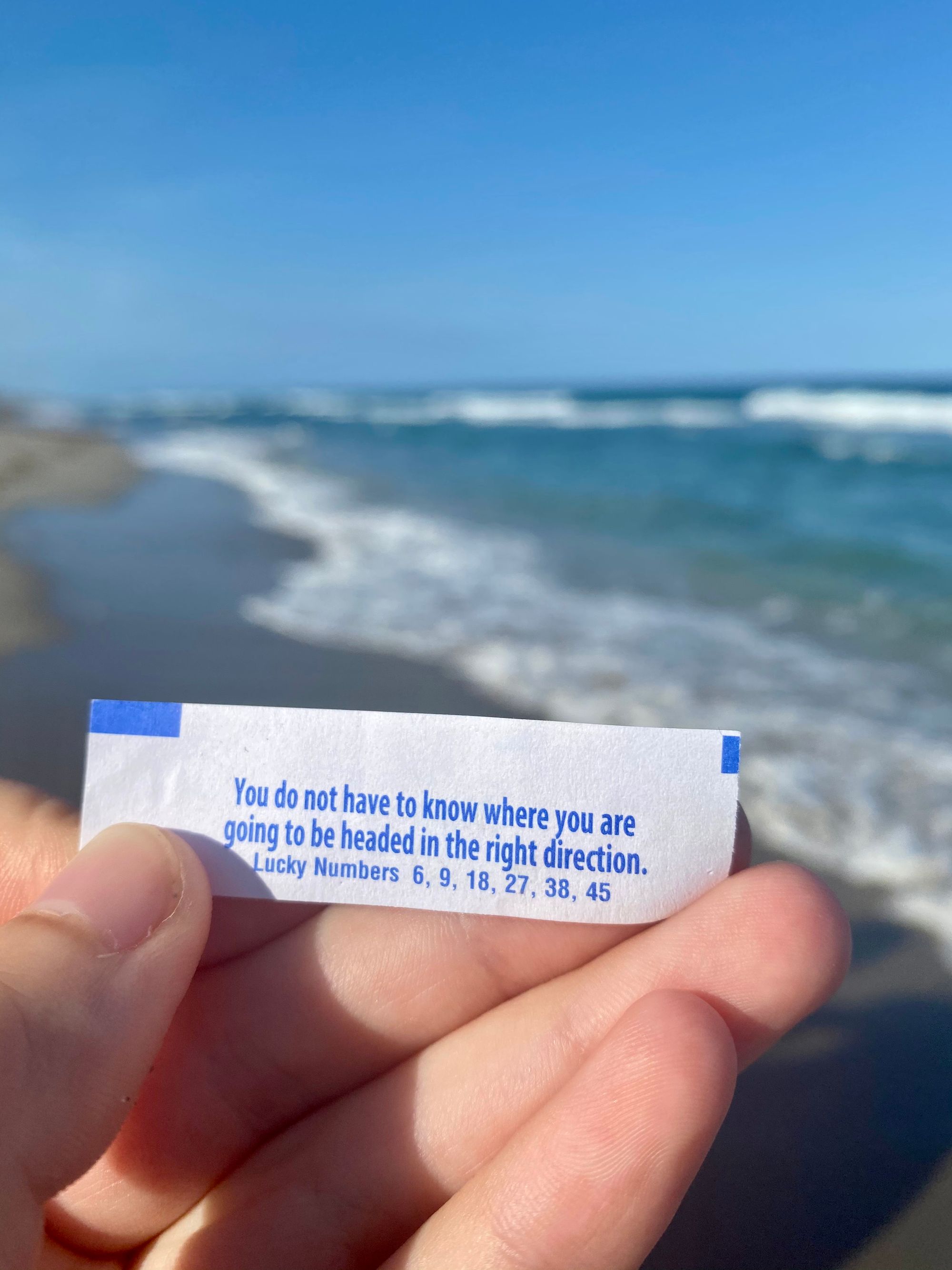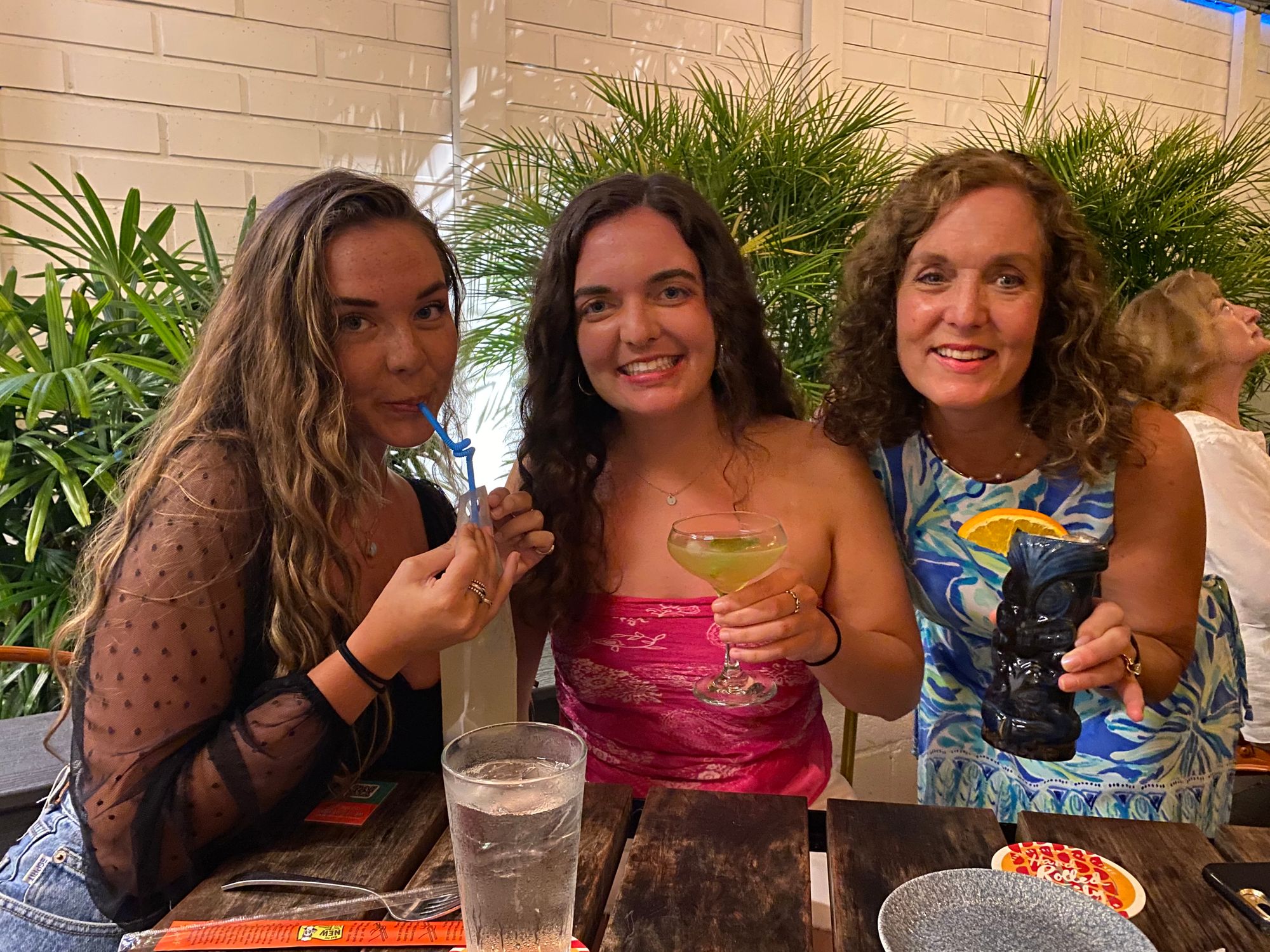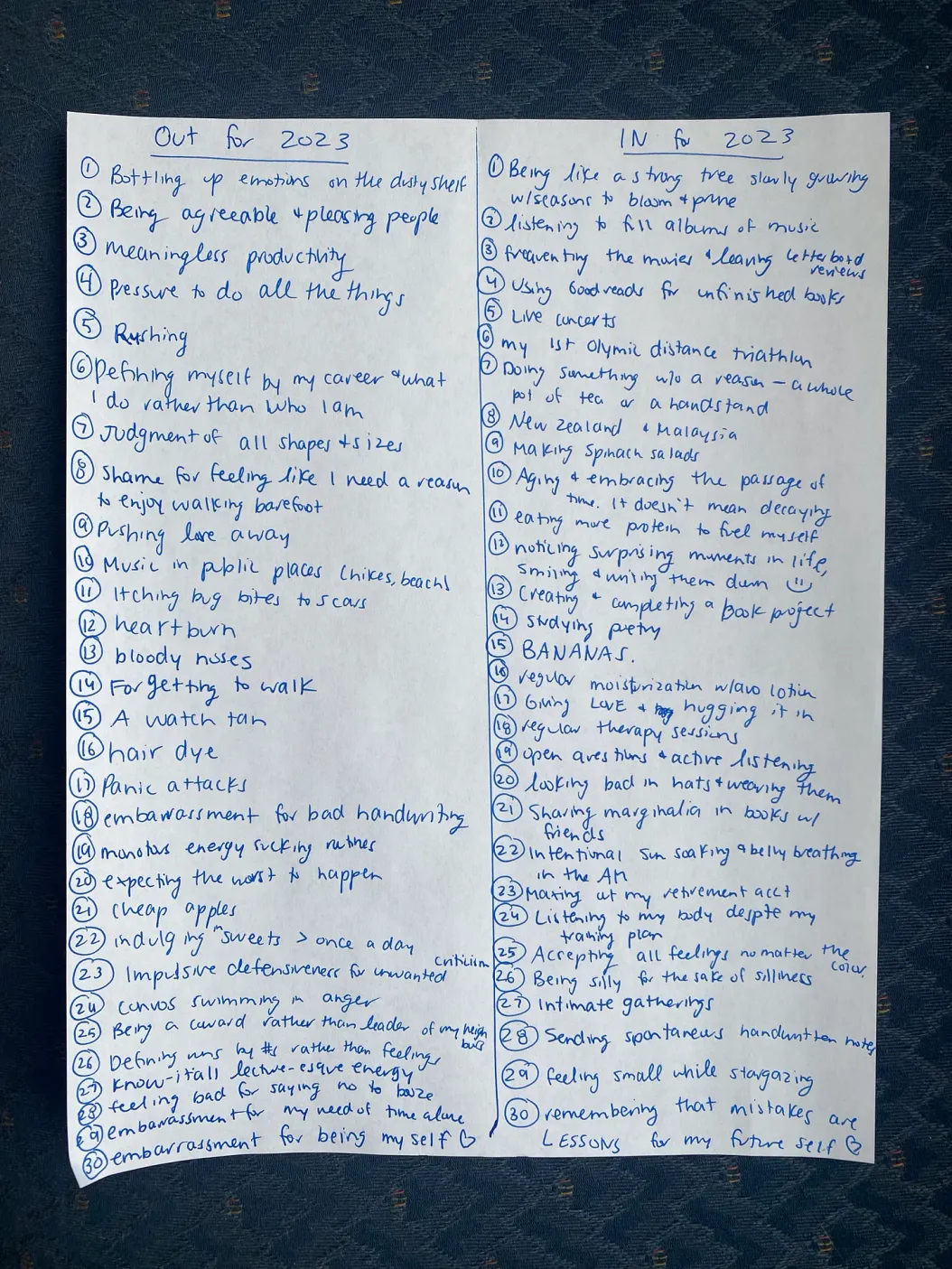Hello fellow learn-it-all,
Greetings from Delray, Florida
Sadly, no sea turtles to be spotted on the beach still.
Nevertheless, I opened a fortune cookie whose saying resonates with me deeply, and it’s in safekeeping in my phone case as a constant reminder.

In case you cannot read it well: "You do not have to know where you are going to be headed in the right direction."
Why does this resonate? It takes the pressure off of myself to feel like I have to have a master plan for life. I am not an architect, so I want to stop trying to force a plan onto myself to have every detail mapped out. That is unreasonable. I’d rather be an archeologist who chips away and makes decisions based on the more I learn about my self.
If you are new here or missed last week's edition, you can catch up on the past letters here. If you are reading this for the first time, I’d love you to sign up below to join the other learn-it-alls:
Now, what's in store for this issue?
- An essay I got inspired to write about last night after a conversation in a breakout room and sharing this tweet.
- Some lessons from Write of Passage on blockers to writing online
- Reading about how we are all bilingual
- Two ponderings about dream sleep and cultural phrases
- A word that makes me think of Christmas and Saint Nick
- A quote from a feminist journalist and social-political activist
- A question to get you thinking about your mindset
- A picture with my mom and sister enjoying dinner in downtown Delray
- Some shoutouts to Write of Passage friends
Now, let’s dive into letter 53 from a learn-it-all. Enjoy!
Some things I’ve learned through…
🖊 Writing
With a burst of inspiration last night from a conversation, I turned into a tweet and then this essay.
“Read 500 pages…every day. That’s how knowledge works. It builds up, like compound interest. All of you can do it, but I guarantee not many of you will do it.” -Warren Buffet
I read this after college and had a major fear of missing out. On top of surfacing knowledge that I was dyslexic a couple years earlier, school made me despise reading. I turned that mindset around.
👩🏻🏫 WOP writing group
My writing group this past week focused on blockers that prevent you from writing online. The main three come from:
- Not enough time. This means that writing is not important enough to you to shift your habits to fit the behavior into your life.
- Writer’s block. This means that you are staring at a blank page with the cursor making you feel incompetent. Having a system to capture the information you consume resolves this issue alongside ambient note-taking I touched on in the last letter with how you already live your life.
- Impostor syndrome. This basically means a modernized sense of fear. Recognize that everyone feels this way at some point or another. This means growth and that is a good thing. It is this gap between your present and past self preventing your future self from performing.
Seth Godin defines this phenomenon as:
That feeling we have that afflicts people of every gender and background. The feeling we have when we're about to lead or do something important. Feeling like a fraud of saying to yourself, "I have no business doing this, what am I showing up doing. It's not my turn. I'm an impostor.
📖 Reading
I have been slowly but surely digesting Untamed by Glennon Doyle. It's one of those books that feels like medicine for the soul and takes time to process. This passage, in particular, I've been noodling over:
We are all bilingual. We speak the language of indoctrination, but our native tongue is the language of imagination. When we use the language of indoctrination– with its should and shouldn't, right and wrong, good and bad– we are activating our minds. That's not what we're going for here. Because our minds are polluted by our training. In order to get beyond our training, we need to activate our imaginations. Our minds are excuse makers; our imaginations are storytellers. So instead of asking ourselves what's right or wrong, we must ask ourselves: What is trust and beautiful? Then our imagination rises inside us, thanks to us for finally consulting it after all these years, and tells us a story.
This training she speaks of is the arbitrary expectations that are set upon us by our culture to be selfless, hustle, and be successful. As women, to be obedient, quiet, and small, to allow for an efficient society rather than a beautiful and true one where we all can trust ourselves and the world.
Before any imagination can become three-dimensional as a reality it must first become two-dimensional by being noticed and written out on a piece of paper.
💭 Pondering
I had a vivid dream that I was one of my favorite characters: Kim Possible. I had a pajama set growing up that rarely got washed because I loved wearing it to bed. I wanted to dye my hair red because that's how hardcore my obsession with Kim was. I wanted to be a secret agent. How did this dream come about? I spoke about video games at dinner somehow that induced a vivid dream of what it was like to be Kim Possible. This makes me think: How can I prompt deep vivid dreams?
Cultures are made up of their unique language. Even the culture in my own family has "secret" shorthand words that a foreigner wouldn't understand.
Chugo? This means "where did you go?"
Jeat? This means "did you eat?"
It is like uniquely coined phrases whose meaning became an agreement. They create closer bonds and forms of connection, while simultaneously creating exclusivity to anyone else eavesdropping. Is it possible to do both: form a closer bond in language and still be inclusive?
🔎 Word to define
Jolly: Full of life and mirth; jovial; joyous; merry; mirthful. To make good-natured; to encourage to feel pleasant or cheerful; often implying an insincere or bantering spirit
Etymology: In the 12th century, Modern French Joli meant pretty, or nice. Late 13th century it was a surname, and late 14th century as the name of a dog: "merry, cheerful, naturally of a happy disposition; comical; suggesting joy or merriment. Jolly robin came to be known as "handsome or charming man, gaily dressed man, dandy" is from the late 14th century.
In the 1540s, its use as a general intensifier in expressions of admiration. As an adverb from early 15th century, stoutly, boldly. Colloquial moved it to mean "somewhat drunk" from the 1650s. Sailor's slang for a marine in the English navy “being a soldier an' sailor too”. Broader Middle English senses, mostly now lost, include vigorous, strong, youthful, playful, frisky to meaning arrogant, overweening, foolish.
Example: I always appreciate a jolly wave or greeting by a stranger in the morning. It can make all the difference.
Example 2: The artist Mike Posner has a jolly persona that I love.
🌟 Quote to inspire
“Dreaming, after all, is a form of planning.” -Gloria Steinem
❓ Question to think about
How can I more intentionally dream and reimagine life?
📷 Photo of the Week

You should have seen the look that was on Steph's face when she saw her drink came in a juice box. I guess it's a new trend?
🙏 Shoutouts
- To Mark Cheng an Livio Li for the great breakout room last night
- To some strong and courageous pieces of writing by Shirley Rivera, I Am a Brown Asian With Smooth Skin and Amanda Natividad Asian Hate Was Always Here
- To my sister and dad for being great boogie boarding partners
- To Gwyn for all her support in helping me become a better online facilitator and shipping her eBook on Creativity
- To Charlie Bleecker for helping me understand how audience growth is actually about cultivating the relationships you already have
- To Michael Ashcroft, for his framing that I can be an archeologist rather than an architect.
I appreciate you reading this! If certain ideas resonated or you have feedback to improve my future newsletters, I’d love you to leave a comment, reply to this email, or send me a message on Twitter @JenVermet.
Never stop learning 😁
Until next week,
Jen
If you’re reading this because someone shared this newsletter with you or you clicked a link somewhere, welcome! I’d love it if you subscribed below to receive future updates:

